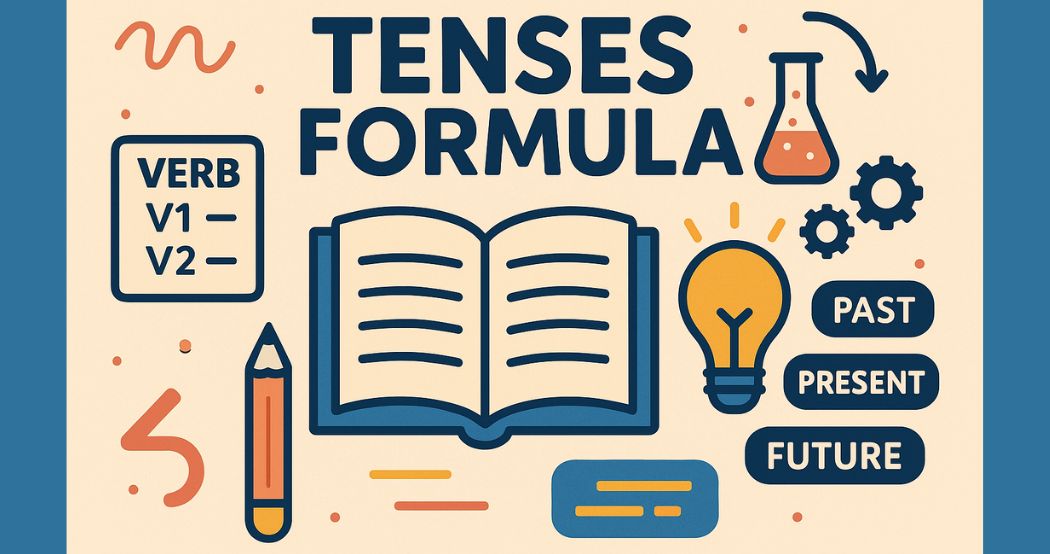Tenses are that form of verb that tends to show the time at which the action happened. Example: Present Tense ‘I play football’, Past Tense ‘I played football’, Future Tense ‘I will play Football’.
The above three tenses are further divided into following types:
Simple Present Tense: It indicates the action which happens in the present and the general truths, scientific facts, habits, etc.
- Let’s see an example
- Positive ‘I prefer black tea’.
- Negative ‘I do not prefer black tea’.
- Question ‘Do I prefer black tea’?
Present Continuous Tense: It indicates an action which is in progress at the time of speaking. It is formed using am/is/are + present.
- Let’s see an example
- Positive ‘She is watching the TV now’.
- Negative ‘She is not watching the TV now’.
- Question ‘Is she watching the TV now’?
Present Perfect Tense: It is used to express an event that happened in the past and its effect is still continuing. It acts as a link between the present and the past.
- Let’s see an example
- Positive ‘It has snowed a lot lately in Kashmir’.
- Negative ‘It has not snowed a lot lately in Kashmir’.
- Question ‘Has it snowed a lot lately in Kashmir’?
Present Perfect Continuous Tense: It explains an event which happened in the past and is still continuing.
- Let’s see an example
- Positive ‘She has been dancing’.
- Negative ‘She has not been dancing’.
- Question ‘Has she been dancing’?
Simple Past Tense: It is used to talk about an action that happened in a time before now.
- Let’s see an example
- Positive ‘We watched Indian Cricket World Cup last month’.
- Negative ‘We did not watch Indian Cricket World Cup last month’.
- Question ‘Did we watch Indian Cricket World Cup last month?’
Past Continuous Tense: It refers to a continuing action that was happening at some point in the past.
- Let’s see an example
- Positive ‘They were learning Literature’.
- Negative ‘They were not learning Literature’.
- Question ‘Were they learning Literature’?
Past Perfect Tense: It points a past action that is completed before another past action.
- Let’s see an example
- Positive ‘She had left when I went to the party’.
- Negative ‘She had not left when I went to the party’.
- Question ‘Had she left when I went to the party’?
Past Perfect Continuous Tense: It indicates ‘how long an action has continues.
- Let’s see an example
- Positive ‘They had been talking for the last hour’.
- Negative ‘They had not been talking for the last hour’.
- Question ‘Had they not been talking for the last hour’?
Simple Future Tense: It is used to make sentences about future time.
- Let’s see an example
- Positive ‘They will study Geography’.
- Negative ‘They will not study Geography’.
- Question ‘Will they study Geography’?
Future Continuous Tense: It points to an action which will be in progress at some definite time in the future.
- Let’s see an example
- Positive ‘He will be waiting for you at the park’.
- Negative ‘He will not be waiting for you at the park’.
- Question ‘Will he be waiting for you at the park’?
Future Perfect Tense: It is used to express an action that is expected to be completed before a certain time in the future.
- Let’s see an example
- Positive ‘You will have relaxed in the spa by the time they arrive’.
- Negative ‘You will not have relaxed in the spa by the time they arrive’.
- Question ‘Will you have relaxed in the spa by the time they arrive’?
Future Perfect Continuous Tense: It points to an action that will continue to a point in the future.
- Let’s see an example
- Positive ‘I will have been working on Tuesday’.
- Negative ‘I will not have been working on Tuesday’.
- Question ‘Will I have been working on Tuesday’?









